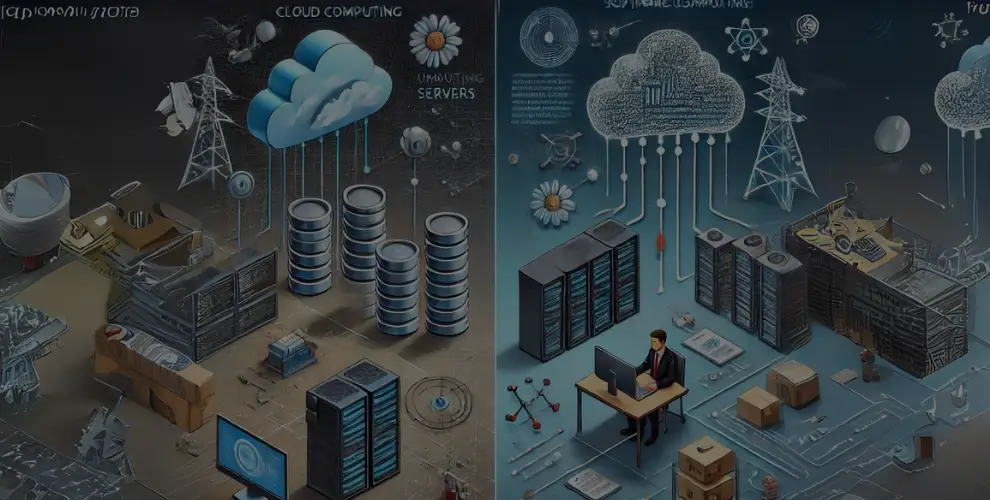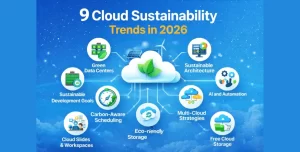
Cloud Computing vs. Software Engineer: A Comparative Analysis
Table of Contents
Introduction
Welcome to WikiGlitz!
We have brought you this amazing blog, Cloud Computing vs. Software Engineer: A Comparative Analysis.
If you’re curious about these two dynamic fields, how they differ, and which one could offer you a more lucrative career, you’re in the right place!
Cloud computing and software engineering are two of the most influential fields in today’s technology landscape.
As businesses shift operations to the cloud and software becomes increasingly essential, many are left wondering which career path to choose. But what exactly is the difference between cloud computing and software engineering?
Which field offers better career prospects and higher pay? In this blog, we’ll break down these questions to help you make an informed decision on your next steps.
Key Takeaways
- Cloud Computing focuses on providing infrastructure, storage, and services through the Internet, while Software Engineering deals with the design, development, and maintenance of software.
- Both fields are highly lucrative, with cloud computing often commanding higher salaries due to its increasing demand.
- Career choice depends on your interest in system infrastructure versus application design and development.
What is the difference between cloud computing and software engineering?
The primary difference between cloud computing and software engineering lies in their core focus.
Cloud computing is about delivering computing services such as storage, networking, databases, and analytics over the internet (the cloud). It involves the design and maintenance of cloud-based systems.
On the other hand, software engineering is about developing software applications. It includes the full software development life cycle—planning, designing, coding, testing, and maintaining applications.
Key Skills:
- Cloud Computing: Knowledge of cloud platforms like AWS, Azure, Google Cloud, virtualization, and networking.
- Software Engineering: Proficiency in programming languages, software development methodologies, and design patterns.
Cloud computing vs. software development: How do they compare?
Although both fields involve computing, cloud computing focuses more on managing resources and delivering services via the Internet, while software development is about creating applications and systems that run on those platforms.
For example, a cloud engineer would ensure that the server infrastructure is scalable and available, while a software developer creates the applications that run on those servers.
In a world where cloud adoption is rising, many software development practices are migrating to the cloud.
Cloud computing has revolutionized traditional software development by offering scalable resources and reducing dependency on physical infrastructure.
Which is better, cloud computing or software engineering?
The answer depends on your personal interests and career goals. If you enjoy working on system infrastructure and deploying services, cloud computing may be better for you.
However, if you prefer designing and coding applications, software engineering is likely the better fit.
While both fields are evolving, cloud computing is becoming increasingly crucial as companies rely more on cloud-based solutions.
If you’re inclined towards future-proofing your career, cloud computing may offer more long-term advantages.
Career in cloud computing vs. software engineering: Which is more promising?
Both fields offer substantial career prospects, but cloud computing is currently experiencing higher growth. With businesses migrating to cloud environments, the demand for skilled cloud professionals is skyrocketing.
According to industry experts, cloud computing roles are expected to grow by 23% in the next five years.
In contrast, software engineering remains a steady and well-established field with a constant demand for talented developers.
However, the competition for software engineering jobs is often more intense due to the large number of professionals in the field.
Cloud computing or software engineering: Which pays more?
Salaries in cloud computing tend to be higher than in software engineering.
According to industry reports, cloud engineers, particularly those with experience in platforms like AWS and Microsoft Azure, can earn 10-15% more than software engineers.
The demand for cloud computing professionals also means there are more high-paying opportunities available in cloud infrastructure management, cloud security, and DevOps.
What skills are needed for cloud computing and software engineering?
To succeed in cloud computing, you’ll need skills in cloud architecture, networking, virtualization, and understanding of platforms like AWS, Google Cloud, or Azure.
For software engineering, the key skills include programming proficiency (in languages like Python, Java, or C++), an understanding of algorithms, and experience with development frameworks.
Cloud computing vs. software engineering job market: Which is more in demand?
Both fields are in demand, but cloud computing is seeing a sharper rise in job opportunities.
Companies are increasingly adopting cloud solutions for scalability, cost savings, and agility. As a result, cloud experts are in high demand for roles such as cloud architects, DevOps engineers, and cloud security specialists.
On the other hand, software engineering continues to be a fundamental field, with consistent job openings in almost every industry.
However, cloud computing’s exponential growth is setting it apart in terms of current demand.
Is cloud computing harder than software engineering?
Neither is necessarily harder than the other, but they require different strengths.
Cloud computing requires knowledge of complex infrastructure, networks, and virtual environments, while software engineering focuses more on problem-solving through programming and designing algorithms.
Many professionals find cloud computing to be more challenging because of its dependency on continually evolving technologies and platforms.
However, software engineering requires in-depth understanding of coding, logic, and software architecture, which presents its own set of challenges.
Which is more in demand: cloud computing or software engineering?
Currently, cloud computing has a higher demand. This is largely driven by the growing number of companies transitioning to cloud platforms and the need for skilled professionals to manage these services.
However, software engineering remains a fundamental career, as businesses will always need software developers to build the applications running in these cloud environments.
Is cloud computing part of software engineering?
Cloud computing is not typically considered part of software engineering, although there is some overlap.
Cloud computing focuses on the architecture and infrastructure that software engineers use to deploy and scale applications.
However, some software engineers specialize in cloud-native development, meaning they build applications specifically designed to run in cloud environments.
How cloud computing is used in software development?
Cloud computing has revolutionized software development by providing scalable infrastructure, platforms, and services.
Development teams now rely on cloud environments for testing, deployment, and hosting their software applications.
Cloud computing offers an efficient, flexible, and cost-effective way to manage development pipelines, enabling faster releases and improved collaboration.
Conclusion
At WikiGlitz, we hope this comprehensive guide helped clarify the differences between cloud computing and software engineering.
Both fields offer exciting and lucrative career opportunities, but choosing the right one depends on your interests in infrastructure management or software creation.
Follow WikiGlitz for more insights to help you navigate the ever-evolving world of technology!
FAQs
What are the career prospects for cloud computing vs. software engineering?
Both fields offer excellent prospects, but cloud computing is growing faster due to the rise in cloud adoption by companies.
How does cloud computing affect software engineering jobs?
Cloud computing has enhanced software engineering by providing scalable, cost-effective platforms for development and deployment.
Is cloud computing harder than traditional software development?
Cloud computing can be more complex due to the intricacies of infrastructure and platform management, but both fields present unique challenges.
Which field has a higher salary: cloud computing or software engineering?
Cloud computing professionals, especially cloud architects, often earn more than traditional software engineers.
Can software engineers transition to cloud computing?
Yes, many software engineers transition to cloud computing by learning cloud platforms like AWS and Azure.
What are the advantages of cloud computing over traditional software development?
Cloud computing offers scalability, flexibility, and cost efficiency, enabling faster software development and deployment cycles.
Want to keep up with our blog?
Our most valuable tips right inside your inbox, once per month.
Error: Contact form not found.
Previous
Will Cybersecurity be Replaced by AIWikiGlitz Team
Welcome to WikiGlitz, your ultimate destination for tech insights and innovation. Our expert team is dedicated to delivering free resources and professional advice on various technology topics, including Artificial Intelligence, Cyber Security, Cloud Computing, and more. We strive to empower our readers with up-to-date information and practical guidance, ensuring you stay ahead in the rapidly evolving tech landscape. At WikiGlitz, we are passionate about making complex technology accessible to everyone. Our team of seasoned experts curates content that is both informative and engaging, helping you understand and leverage the latest tech trends. Whether you're a tech enthusiast or a professional, WikiGlitz is your go-to source for reliable, expert-driven content. Join us on this journey to explore and embrace the future of technology.





